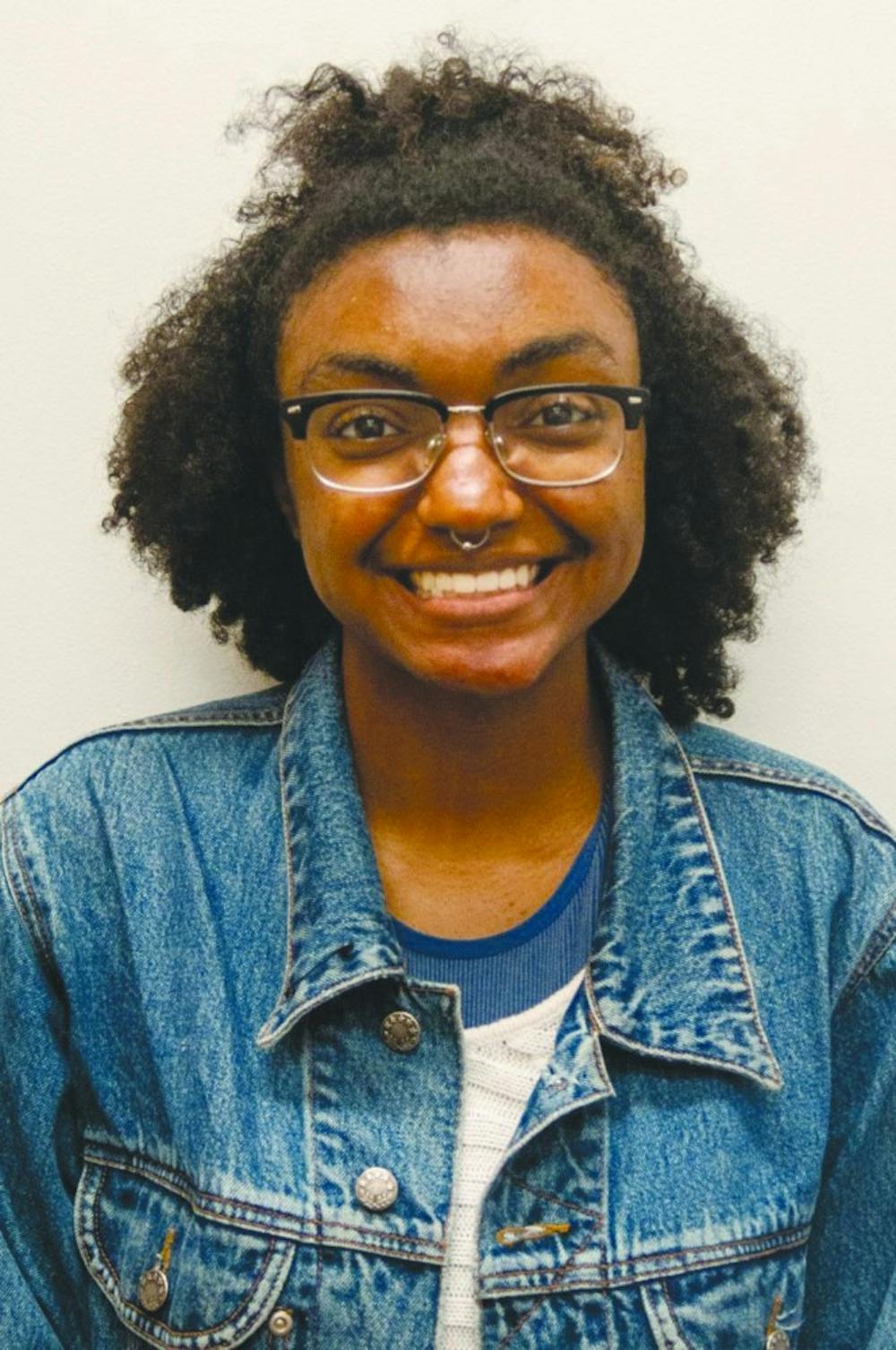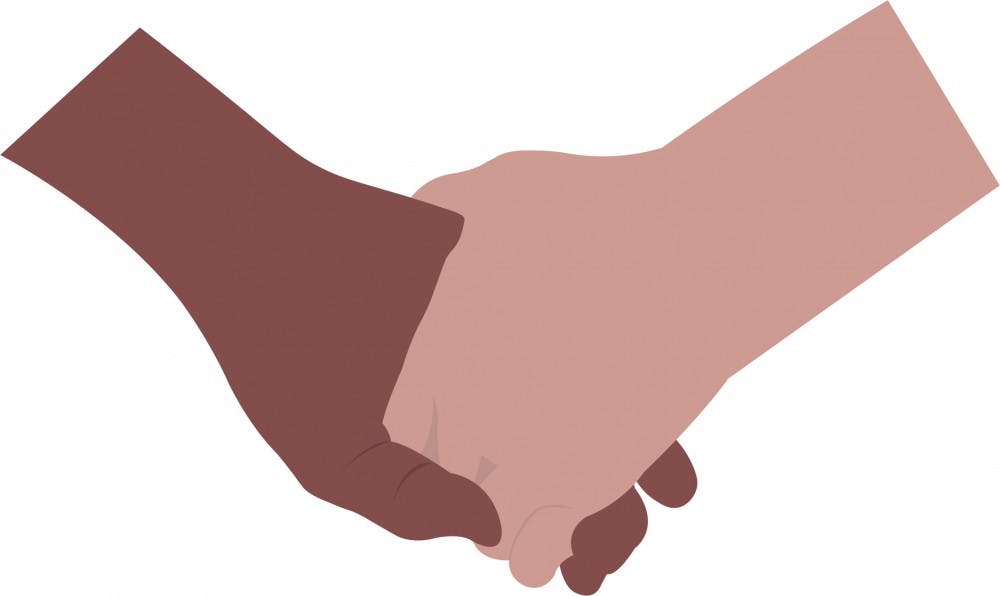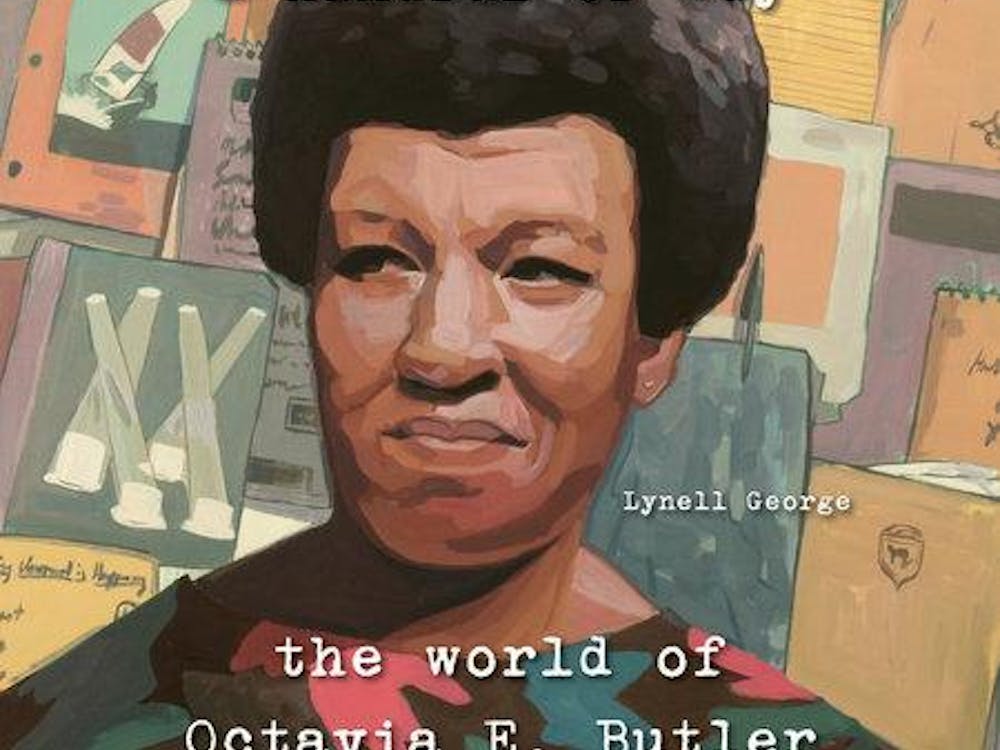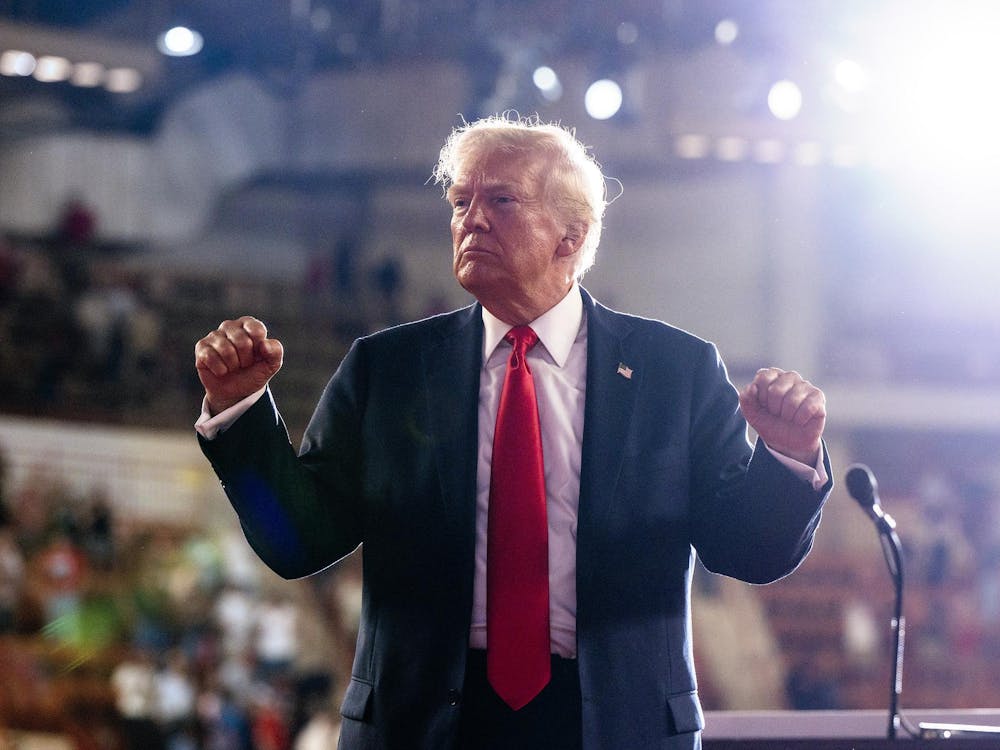
Kennedi Barnett is a sophomore journalism news major and writes "Kennedi’s Kaleidoscope" for The Daily News. Her views do not necessarily agree with those of the newspaper. Write to Kennedi at kpbarnett@bsu.edu.
We walked into the restaurant, and I immediately felt eyes following us as we completed our order.
The stares and pointing fingers of an entire family followed my worrisome thoughts. I overheard their murmurs of disgust. They were disappointed in him for dating someone who looked like me. I felt the hate exude from their skin.
I kept thinking if this was a more blue state, people would not be opposed to a white guy dating a black girl. Or if I was a bit lighter skinned, they would not have pointed and glared at us. Or maybe if I was a black guy and he was a white girl, our relationship would be deemed normal.
I had become so used to the acceptance and inclusivity of a college campus, I almost forgot that the world may not be as comfortable with people of different races being in a relationship.
No one wants to think about racism. No one wants to believe the people in the place they grew up are racist.
However, the harsh truth is Indiana is an inherently racist state.
Indiana has a long history of Ku Klux Klan (KKK) affiliation, and a map from the Southern Poverty Law Center (SPLC) shows there are more than 30 hate groups registered in Indiana.
In my 19 years of living, I have been called the n-word by white men in pickup trucks more than I have been catcalled. Teachers have told me I am smart for someone of my background more than I have been awarded for my learning skills. If I got a dime for every time someone told me I was too dark, I would be rich.
And now, I feel uncomfortable with my boyfriend in public because he is white, and I am black.
We are taught in school that racism is over, discrimination is dead, it is no longer an issue and everyone is treated equally. However, the Emancipation Proclamation of 1863 did not end prejudice, only slavery. Far after slavery, people of color like Trayvon Martin, Michael Brown and so many more were murdered in the streets. Many states enacted Jim Crow laws after 1863 that segregated schools and barred people of color from voting by enacting poll taxes.
They also placed risk of fines or even imprisonment on those who decided to marry outside their race. Many Jim Crow laws were only abolished in 1964.
Congress may pass a law, but by no means does the nation have to socially accept it. Legislation does not indicate social change.
This kind of discrimination has been normalized in society. The idea of dating someone of a different race is a fairly new concept. Interracial marriage was only legalized in 1967, and even far after its legalization, in 2016 an interracial couple was murdered after a white supremacist witnessed them kiss at a bar in Washington.
I do not want this to be my life. No one should have to face this. No one should have to feel this way.
I am in love for the first time in my life, and instead of worrying about how our cats will react to each other when we move in together, I am stressed about the potential violence and chaos that could occur from dating someone who is a different race than me.
Where does this leave us? Is it fair I must be afraid every time I go out in public with my boyfriend? Do I deserve to be uncomfortable going to the grocery store, eating at restaurants or even holding his hand?
This nation has a long history of ignoring the problem to the point history starts to repeat itself.
Are we going to actually address the race issue in this country or just pretend it is not happening?
I am tired of saying, “It’s [insert year here], people should not be racist anymore.”
But, it is 2019.
It's a wonderful time to start standing up to your racist aunts, uncles and friends by telling them change is beautiful. It's the year to start using inclusive language and not just saying “people are too easily offended.” It's the year to let people love who they love because love is a truly splendid thing.
Or maybe even the year to realize racism still exists. It is still a problem and just because you have not witnessed it does not mean it is not happening.





